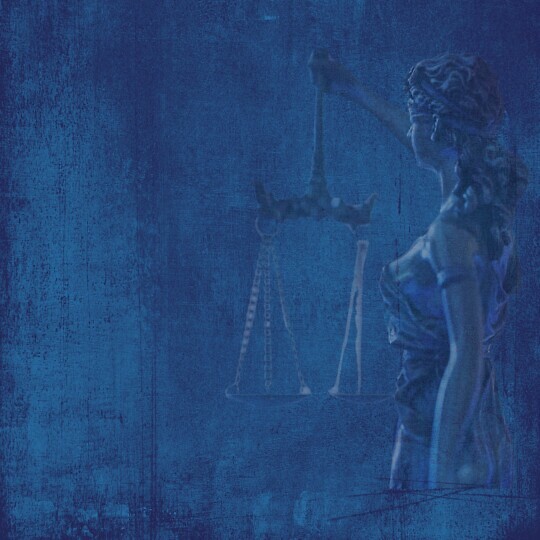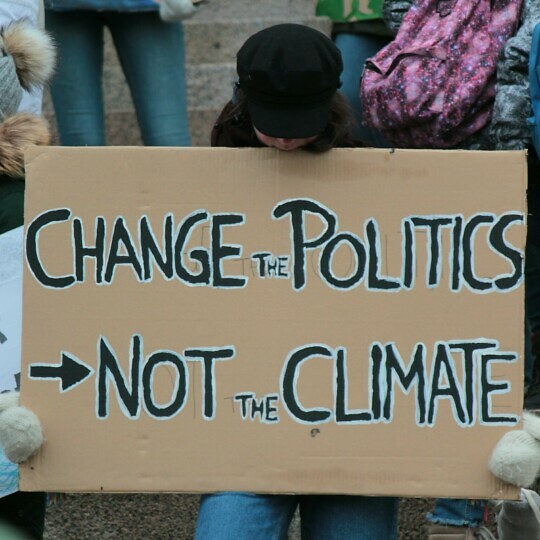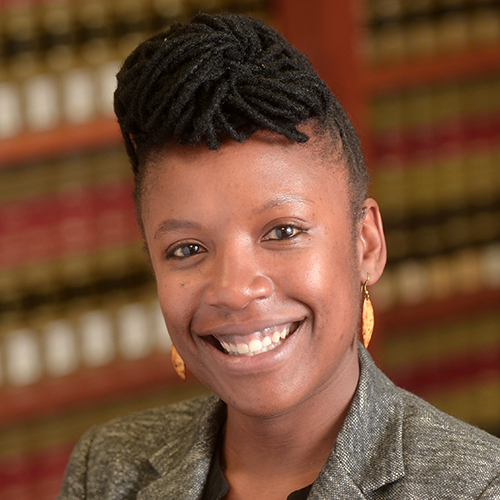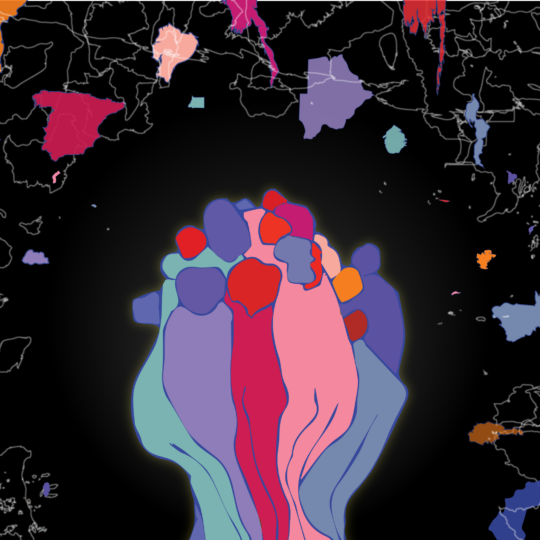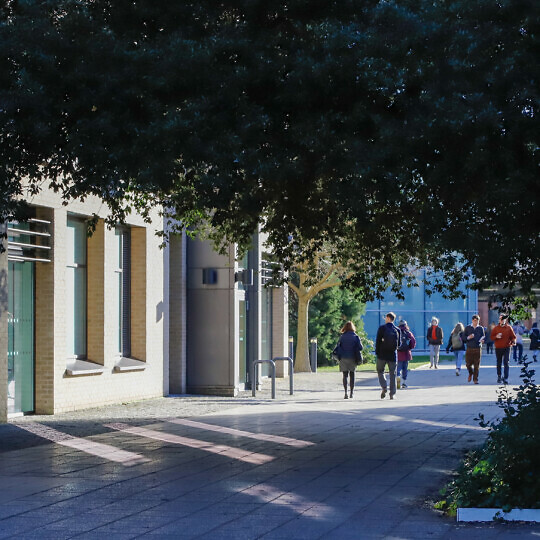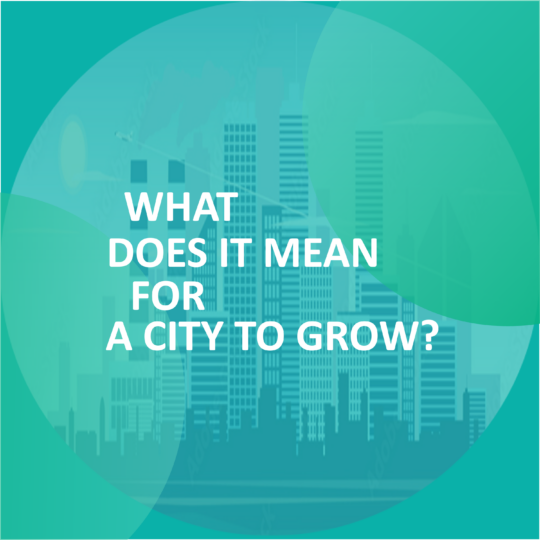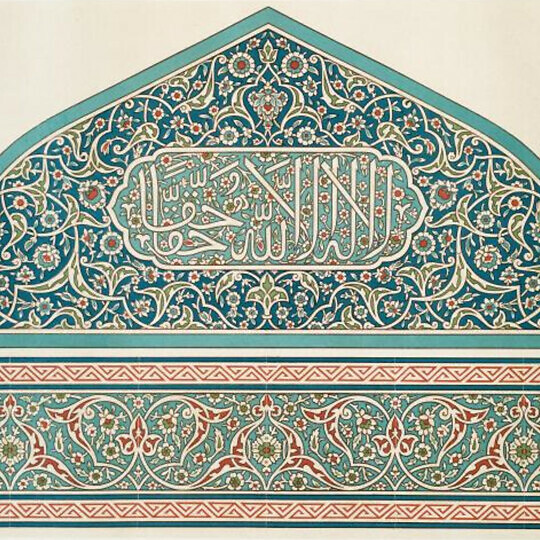| 5 May 2021 - 25 Jun 2021 | All day | ONLINE | |
- Description
- Programme
- Abstracts and Biographies
Description
Sign up to the CRASSH Newsletter for more information and updates on this conference.
Convenors
Hjördis Becker-Lindenthal
Andrew Sackin-Poll
Summary
The influence of Søren Kierkegaard upon the emergence and development of France’s own distinct philosophical voice in the twentieth century is undeniable. It can be heard in existentialism (Sartre, de Beauvoir, Camus, among others), phenomenology (Emmanuel Levinas and Jean-Luc Marion), and even novel figures of metaphysics (Jean Wahl and Gilles Deleuze). Yet there are very few works dedicated to exploring the various guises this influence takes in France. While there are good works on the reception of Hegel in France, Heidegger in France, Husserl in France, etc., Kierkegaard’s significance is almost marked out by his absence. This is something the conference seeks to correct.
The conference aims to touch upon key figures in the history of Kierkegaard’s reception in France from the 1930s to the present day. The Dane’s insistence upon the individual, existential experience and decision, the instant, and so on, can be forcefully heard in early existentialists works of Eastern European immigrants, like Léon Chestov, Rachel Bespaloff, and Benjamine Fondane, who, along with Jean Wahl, are decisive for the introduction of Kierkegaard in France. This is more than simply a footnote in intellectual history but decisive for the way in which French thought develops from this point right up until our present moment. It sets many of the key terms that form the horizon of contemporary French thought.
There are many twists and turns in the path that follow from this initial introduction. They can be seen in two distinct yet interwoven lines: existentialism and the critical stance toward idealist metaphysics. This is shown most clearly in the works of Sartre, Camus, and de Beauvoir in the 1930s and 1940s as well as later developments in phenomenology through Levinas and Marion. In such works, Kierkegaard stands as a counterpoint to the dominance of Hegel’s idealism and Heidegger’s ontology in France. Such a counterpoint offers an alternative engagement with existence, life, and even the divine. But Kierkegaard does not only matter for existentialism and phenomenology. The metaphysical preoccupations of Wahl’s early engagement with Kierkegaard are reflected in the works of his student Deleuze, meaning that the Dane plays a curious role in the emergence of structuralism and ‘difference philosophies’ in the 1960s and 1970s. Even today, Kierkegaard continues to walk alongside contemporary French thinkers and writers, like Emmanuel Falque.
By reflecting seriously upon the reception and influence of Kierkegaard in France, this conference will draw out more explicitly an important dimension to philosophical debates taking place in France today. This conference is not only an intellectual survey of important moments in French thought but also an intervention in the way we understand the stakes of contemporary French thought, beyond the horizon of Hegel, Nietzsche, Husserl, and Heidegger. In doing so, the parameters for our thinking about singularity, existence, experience, and metaphysics, can be redrawn, opening novel avenues for the future in Kierkegaard scholarship as well as distinct philosophical, theological, and metaphysical endeavours.
Registration links for this conference can be found on the right of this page.
Supported by:
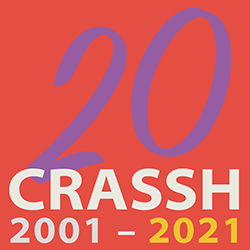

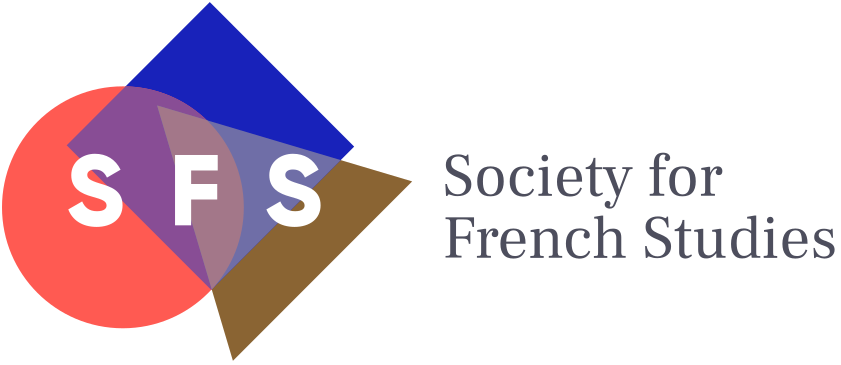
 #KierkegaardinFrance
#KierkegaardinFrance
If you have any specific accessibility needs for this event please get in touch. We will do our best to accommodate any requests.
Conference assistance: events@crassh.cam.ac.uk
Programme
Links for booking can be found below or on the right of this page. You can book for single or multiple events. To view the speakers pre-recorded presentations, click on the talk’s title. |
|
| 5 May, 16.00 - 18.00 (BST) |
Emmanuel Falque (ICP, Paris) |
| 14 May, 15.00 - 17.00 (BST) |
Joshua Furnal: On Kierkegaard’s Side Mélissa Fox-Muraton (Clermont/University Clermont Auvergne) |
| 21 May, 15.00 - 17.00 (BST) |
Kate Kirkpatrick (Oxford) Amber Bowen (Redeemer University, Hamilton, Ontario) |
| 28 May, 15.00 - 17.00 (BST) |
Pierre Alban Gutkin-Guinfolleau (ENS, Paris) Iben Damgaard (University of Copenhagen |
| 4 June, 15.00 - 17.00 (BST) |
Katerina Koči (Institute for Human Sciences, Vienna) Henry Somers-Hall (University of London) |
| 11 June, 15.00 - 17.00 (BST) |
Andréa Bellantone (ICT, Toulouse)
|
| 18 June 15.00 - 17.00 (BST) |
Jeff Hanson (Harvard University) |
| 25 June, 15.00 - 17.00 (BST) |
Olivier Salazar-Ferrer (University of Glasgow) Ramona Fotiade (University of Glasgow)
|
Abstracts and Biographies
Emmanuel Falque, Keynote
Prof Emmanuel Falque is the honorary dean of the Philosophy Department at the Catholic Institute of Paris. He has written numerous works on theology and phenomenology, most recently The Book of Experience, from Anselm of Canterbury to Bernard of Clairvaux (Notre Dame, 2021) and Nothing to It, Reading Freud as a Philosopher (Leuven: Leuven University Press, 2020).
Abstract
At the Bottom of Despair: Variations on the Possible and the Impossible
A Contemporary Reading of Kierkegaard
“The possible, the possible, otherwise I’ll suffocate!” The formula attributed by many French philosophers, like Deleuze and Maldiney, to name only two, to Kierkegaard in The Sickness Unto Death is well known. But maybe we should say instead: “The impossible, the impossible, otherwise I will suffocate!” Following the path of what could be an ‘extra-phenomenon’ in order to read Kierkegaard, I put forward in this lecture a “French variation on the possible and the impossible” (Kierkegaard, Maldiney, Deleuze, Mounier, and so on), in order to ask ourselves what might ‘leaving the crisis’ mean today.
« Du possible, du possible, sinon j’étouffe ! ». La formule attribuée par de nombreux philosophes français (Deleuze, Maldiney… ) à Kierkegaard dans La maladie à mort est connue. Mais peut-être faudrait-il dire plutôt : « De l’impossible, de l’impossible, sinon j’étouffe ! ». Suivant la voie de ce qui pourrait être un « Hors phénomène » à la lecture de Kierkegaard, cette conférence proposera une « variation (française) sur le possible et l’impossible » (Kierkegaard, Maldiney, Deleuze, Mounier…), pour se demander ce que pourrait bien vouloir dire aujourd’hui « sortir de la Crise ».
Amber Bowen completed her PhD at the University if Aberdeen and recently took a position at Redeemer University in Hamilton, Ontario as Assistant Professor of Philosophy.
Abstract
More than Quotable: The Implicit Kierkegaardianism of Marion’s Phenomenology
It is not uncommon to see references to Kierkegaard’s authorship among French new phenomenologists, especially for the purpose of legitimizing their own approach or analysis. However, many of these references demonstrate “insufficiently phenomenological” readings of Kierkegaard by subsuming his texts into their horizons of their own meaning, rendering his authorship more “quotable” than consequential. By contrast, Jean-Luc Marion references Kierkegaard’s work only occasionally, but I will argue his phenomenology is most explicitly “Kierkegaardian.”
Iben Damgaard is Associate Professor at the Søren Kierkegaard Research Centre, University of Copenhagen. She has investigated Kierkegaard in relation to Ricœur in her ph.d., Mulighedens Spejl, [The Mirror of the Possible], and Kierkegaard’s biblical rewritings in the book At lege fremmed med det kendte [Playing Stranger with the Familiar] and has co-edited Subjectivity and Transcendence and In-visibility. Reflections upon Visibility and Transcendence in Theology, Philosophy and the Arts.
Abstract
According to Ricœur, Kierkegaard embarrasses us because he is a philosophical insider and outsider at the same time. Ricoeur argues that Kierkegaard articulates a new mode of doing philosophy and investigates what it means to do philosophy after Kierkegaard. In the paper we will explore how Ricœur’s reception of Kierkegaard faces the philosophical borders towards a religious poetics of the possible, and we will consider the occasions, when Ricœur chose to speak with what he called “the Kierkegaardian part of myself”.
Ramona Fotiade is Reader in French at the University of Glasgow and Director of the Lev Shestov Studies Society. She is editor in chief of the Lev Shestov Journal (which published Shestov’s correspondence with Martin Buber in 2005 and a special issue on Shestov and Kierkegaard in 2014). In 2016, she curated the retrospective exhibition Lev Shestov – The Thought from Outside, at the Town Hall of the 6th arrondissement in Paris, and edited the exhibition catalogue. The same year she produced and co-scripted a film documentary on Lev Shestov which was released during the exhibition. Her other publications include: Lev Shestov: The Meaning of Life and the Critique of Scientific Knowledge (in The Oxford Handbook of Russian Religious Thought, 2020), Embodiment. Phenomenological, Religious and Deconstructive Views on Living and Dying (co-edited with David Jasper and Olivier Salazar-Ferrer, 2014), The Tragic Discourse. Shestov and Fondane’s Existential Thought (2006), Conceptions of the Absurd. From Surrealism to the Existential Thought of Shestov and Fondane (2001).
Abstract
In his last article on Husserl, written in 1938, Shestov remarked: ‘It is possible to understand and judge Husserl only if one grasps his profound inner relation to Kierkegaard’. By the same token, to understand Shestov’s interpretation of Kierkegaard, one needs to consider Shestov’s relationship to Husserl. This triangular relationship is of particular relevance for the evolution of both atheist existentialism and the so-called theological turn in French phenomenology. Although the thorough reappropriation of the phenomenological method by the most prominent theologians and atheist philosophers in France for more than half a century seems to have obscured the significance of the ‘Kierkegaard-Husserl “either-or”’, this paper will argue that far from being a ‘voice crying in the wildnerness’, Kierkegaard’s message has been heard by other maverick philosophers for whom the possibility of freedom is tied in with the possibility of ‘choosing to choose’.
Mélissa Fox-Muraton is Professor of Philosophy at the ESC Clermont (France), and member of the Philosophies and Rationalities Research Centre at the University Clermont Auvergne. She is author of Ontologie de la chair and Logique, langage, existence: Kierkegaard et Wittgenstein (forthcoming 2021), as well as numerous articles on Kierkegaard and existential ethics, and has also edited Kierkegaard and Issues in Contemporary Ethics.
Abstract
Love, Reciprocity, Equilibrium: Simone de Beauvoir in Dialogue with Kierkegaard
In this talk we will seek out the resonances between Beauvoir and Kierkegaard’s thought, especially focussing on one of the central themes in both of their works: love. While Beauvoir’s existentialist ethics is often read as having inherited from Kierkegaard the notions of despair, anxiety, choice, and freedom, we will argue, first, that Beauvoir actually developed her philosophical positions long before she read Kierkegaard (or met Jean-Paul Sartre), and second, that love plays a much more essential role in her ethics and oeuvrethan the negative existentialist concepts.
Joshua Furnal (Ph.D. Durham) is Senior Researcher & Assistant Professor of Systematic Theology in the Faculty of Philosophy, Theology and Religious Studies at Radboud University, Nijmegen (the Netherlands). He is author of Catholic Theology after Kierkegaard (Oxford University Press, 2016), co-editor of Kierkegaardian Echoes: The Reception of Kierkegaard in 20th & 21st Century Philosophy & Theology, and several articles on Kierkegaard and Cornelio Fabro.
Abstract
On Kierkegaard’s Side. Revisiting De Lubac’s Catholic Humanism
I revisit briefly i) Stephanos Geroulanos’ historical account of the transition from humanism to nonhumanism in France as a backdrop to my survey of ii) Maurice Blanchot’s review of Henri de Lubac as a concrete example of Kierkegaard’s present absence, to conclude with iii) de Lubac’s retrieval of Kierkegaard’s theology as a return to the task and goal of human flourishing as a theological project. My claim is that not only does de Lubac provide a helpful interpretation of Kierkegaard as a theological alternative to negative philosophical anthropology, but also that de Lubac’s retrieval of Kierkegaard invites us to reconsider the companionship between philosophy and theology that is left unclaimed in contemporary portrayals of existentialism and phenomenology.
Pierre-Alban Gutkin-Guinfolleau is the author of a doctoral thesis on Vladimir Jankélévitch’s work entitled Reality of existence. His academic research mainly focuses on contemporary French philosophy and the many uses of Kierkegaard. Member of the Centre international de philosophie française contemporaine (UMR 3608, Ecole Normale Supérieure de Paris), he also teaches in high school and in university (Institut Catholique de Paris).
Abstract
Jankélévitch: a Philosophy Using Kierkegaard Without Knowing
This talk will explore the nature of Jankélévitch’s reception of Kierkegaard. The aim is to show that this reception is neither that of a commentator, nor that of a disciple. This reception is a more diffuse, atmospheric and yet fully operative influence. This is why we will argue, in a provocative manner, that Jankélévitch uses Kierkegaard without knowing, that is, without fully knowing the Dane’s work, and without trying to extract from a commentary the notions that nevertheless work from within this work.
Jeffrey Hanson Jeffrey Hanson is Senior Philosopher at Harvard University’s Human Flourishing Program. He is the author of Kierkegaard and the Life of Faith: The Aesthetic, the Ethical, and the Religious in “Fear and Trembling” and the editor of Kierkegaard as Phenomenologist: An Experiment. He is co-editor with Sharon Krishek of the forthcoming Cambridge Critical Guide to The Sickness unto Death, co-editor with Michael R. Kelly of Michel Henry: The Affects of Thought, and co-editor with Michael R. Kelly and Brian Harding of Proof of Life: The Practical Philosophy of Michel Henry.
Abstract
This presentation revisits Michel Henry’s evolving responses to Søren Kierkegaard’s The Concept of Anxiety, which early in his career he dismissed but came eventually to regard much more appreciatively. Focusing on his late discussion of the Dane’s influential text in Incarnation, I show how Henry perceptively identifies Kierkegaard’s linkages between anxiety and generation, a term that at once denotes sexual propagation and successive temporal epochs. Henry also rightly averts to the theme of language at the end of his book, but I argue that Kierkegaard ties this theme even more strongly to his philosophical anthropology than Henry seems to acknowledge. For Kierkegaard, language contains everything that is necessary for spirit, which transforms and elevates body and soul. Language is closely tied to the anxiety of sexuality, inasmuch as it requires embodiment, a plurality of speakers, and the unfolding of time. Kierkegaard’s claim that all spiritual language is metaphorical suggests that Henry should consider the possibility that language could be not always necessarily mendacious but a potential site of Life’s speaking itself into the world, the vehicle for the word of God to be heard in human words.
Kate Kirkpatrick is Tutorial Fellow in Philosophy and Christian Ethics at Regent’s Park College, University of Oxford. She is the author of several papers and books on French existentialists, including Sartre on Sin: Between Being and Nothingness, Sartre and Theology, and a biography of Simone de Beauvoir, Becoming Beauvoir: A Life.
Abstract
Sartre’s engagement with Kierkegaard in Being and Nothingness and Existentialism is a Humanism is well known: the concept of anxiety and the exemplar of Abraham have become existentialist clichés. This paper raises methodological questions about Sartre’s reception of Kierkegaard within and beyond that story – turning to antecedents of Kierkegaard in French philosophy and Sartre’s philosophical formation to argue that what Manuela Hackel has called ‘omnipresence’ of Kierkegaard in Sartre has other plausible explanations.
Katerina Koci is a post-doctoral researcher at the Institute for Human Sciences in Vienna, Austria, and a laureate of the Lise Meitner Fellowship funded by Austrian Science Fund (FWF) for the project entitled Woman without a Name: Gender Identity in Sacrificial Stories (M2947-G).
Abstract
The Gift of Hope: The Existentialist Derrida on Life, Death and Sacrifice
This paper maps the existentialist influence of Kierkegaard on the poststructuralist thinker Jacques Derrida. It focuses on the concept of hope and its transformation in the secular humanistic context. The paper aims to investigate how and if at all can one talk about the Christian concept of hope in a non-religious discourse.
Henry Somers-Hall is a reader in philosophy at Royal Holloway, University of London. He is the author of Hegel, Deleuze, and the Critique of Representation (2012), Deleuze’s Difference and Repetition (2013), and Judgement and Sense in Modern French Philosophy (forthcoming 2021), and co-editor of the Cambridge Companion to Deleuze (2012) and A Thousand Plateaus and Philosophy (2018).
Abstract
Deleuze presents very few analyses of Kierkegaard’s texts. In this paper, I want to use Deleuze’s discussion in What is Philosophy? of Kierkegaard’s thought to explore the adequacy of Deleuze’s reading of Kierkegaard. In particular, I want to explore whether Deleuze’s identification of what he calls Kierkegaard’s conceptual persona with the knight of faith ultimately provides a reductionist account of Kierkegaard’s use of pseudonymity, and whether anxiety can be captured by the plane of immanence.
Olivier Salazar-Ferrer’s biography can be read on his institution page
Abstract
This paper explores the essay written in 1933 by Rachel Bespaloff (1895-1949) on Kierkegaard’s The Repetition in Cheminements et carrefours (1938). Disciple of Lev Shestov, she is one of the first commentators of Kierkegaard’s works, focusing on the role of the concept of repetition as revival or creative transformation of the past from the aesthetical and ethical stages to the religious one, highlighting the musical structure of Kierkegaard’s polyphonic narrative and the paradoxical struggle with existence of the ‘acrobat of the infinite’.

